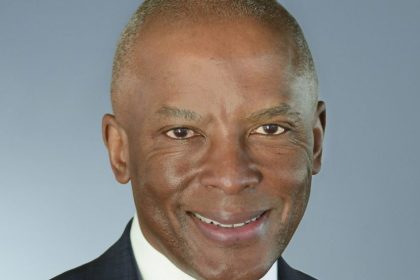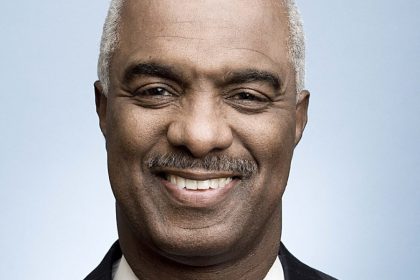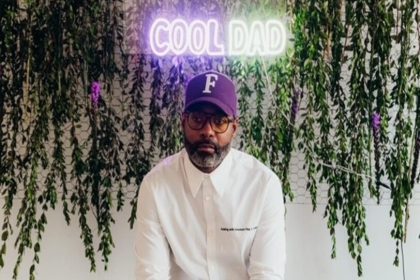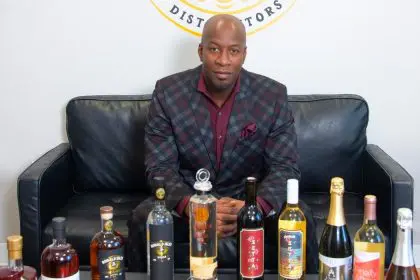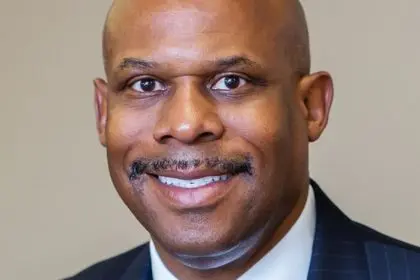
Regina Gwynn, co-founder of Black Women Talk Tech (BWTT), is a dynamic force in the technology industry. After starting her career in product development at Macy’s Inc. and working as a management consultant at Monitor Group, she ventured into entrepreneurship in 2014 with TresseNoire, an on-location beauty booking app. In 2017, her experiences as a tech founder led her to collaborate with Esosa Ighodaro and Lauren Washington to create BWTT, a collective that now supports over 5000 women of color tech entrepreneurs. Under her leadership, BWTT has grown to host the largest conference for women of color in the tech industry, attracting major sponsors like Walmart Connect and SheaMoisture for their annual “Roadmap To Billions” conference.
Why and how did you fund and begin to found Black Women Talk Tech?
Black Women Talk Tech started as an opportunity to create a community for women of color building technology companies. Myself and my co-founder, Esosa Ighodaro were both tech entrepreneurs, we had founded our own technology companies and understood very personally how challenging it was navigating the technology ecosystem, having built our own. I had a beauty startup back in 2013-2014, here in New York City, and so it was that experience where, raising venture capital, trying to find the right CTO, trying to understand how to develop a business model, that just hadn’t been developed before. There was no blueprint, and so trying to find other resources and access to those opportunities was what really prompted us to develop Black Women Talk Tech. We now educate, amplify and fund other women entrepreneurs through our Roadmap to Billions technology conference series, our recruiting events, as well as our pitch competitions and more.
What should young women understand about having a mentor who is already in the tech business?
When I think about having a mentor, the first thing is having someone who’s willing to tell it like it is. You want to be able to have someone that’s going to not sugarcoat anything. This business is very tough, it’s very male dominated, and in the grand scheme of things you need to be able to do your job. I think a lot of times there’s this idea where you want to be able to focus on all of the soft skills and the soft skills are important, but you also have to be able to physically, professionally and be able to fulfill the role in and of itself, and then be able to layer on the soft skills, the networking, the relationship building and the cultivation.
A mentor should be able to help you understand that, and be able to position you to understand how well are you doing in your job first, and then be able to position all of the other pieces. Specifically within technology, the challenge isn’t getting in, it’s staying in and so making sure that you’re finding those multiple mentors that you may need. You may need the technical mentor that’s helping you understand technically, how are you doing in your engineering role? Your UX/UI role, your project manager role, and then how are you doing in your relationship manager roles or your relationship manager skill set, so it can be done.
How important is it to understand the language of technology as a founder?
I do think that there is some value to talking tech. It is that thing that oftentimes make people feel very intimidated. That was one of the things that was very intimidating to me. I don’t come from a technology background, I went to school for marketing. I am not an engineer by trade, didn’t go to school for it, and so that was something that felt very foreign to me. What is Python? What is Ruby on Rails? What is Agile, project learning? What are these methodologies?
The more comfortable you are in understanding this language the better you are able to communicate. I do think that it does help you navigate being able to move between different opportunities. It helps you identify opportunities when you can kind of translate the language, but also understand that the language is changing, the technologies are changing.
How important is it for you, as a black woman, to know how to build a team?
Critical. I do think it’s absolutely critical to understand how to build a team. There’s a time to know how to lead a team, and then there’s a time to know how to be a part of a team. I think teams are what helps you scale your impact. So when you’re able to create a team that actually allows you to scale the impact of your work, that speaks volumes to your ability to show your success, and so when you’re able to do that and identify the right people for your team, I think that that becomes really amazing.
How should individuals approach failure instead of making it so final?
Failure is going to happen. I think that I have failed very publicly several times in my life and throughout my career, and so you definitely have to get used to failure. Understanding that not only is failure going to happen, it’s going to happen often, it’s going to happen publicly, but being able to put failure in a box and understand that it’s going to happen at this one moment and for this one project.
Knowing that failure is going to be an opportunity to learn, it’s going to be this one project, this one box, this one opportunity. You’re going to learn from it, you’re going to go to sleep, and then you’re going to move on, and it can be tough. It can definitely be frustrating, it can be disappointing, but you have to define the failure, not let other people define it for you.
What should entrepreneurs know about seeking funding in the current climate?
2 things to always know, or 2 things to always be ready to answer should always be your numbers. What is your current traction? What type of return on investment should an investor expect? So in terms of margin or profitability, if someone were to give you half a million dollars, what type of return should they expect? Those are definitely numbers that you should be prepared to answer if an investor were to ask.
I also think, in terms of today’s climate, it really depends on the business, but particularly for businesses of color, it’s a very tough climate. I think smart entrepreneurs are going to do what they need to do to focus on the bottom line. The focus is green, and I think that a lot of investors and a lot of clients that we talk to are always going to be focused on the economic opportunity.
Why should entrepreneurs attend your conference and what value does it add?
I think that, specifically for Roadmap to Billions, we have been very intentional about filling this conference with a lot of value. Let me start with the number one, education. This conference is packed with very specific workshop intensives that are meant to allow you to leave with literally learning something you’ve never learned before.
Number two, you’ll also be learning master classes with venture capitalists, women venture capitalists on fundraising workshops. We also have VC office hours. Number four, what we wanted to do this year was have a private off the record space for founders to be their whole selves.
I think the last thing that was really important for us, and why we think conferences, specifically Roadmap to Billions, is important for this entrepreneur community is that we’ve been doing this for 9 years. This is our 9th annual Roadmap to Billions Conference. We’re not new to this folks. We have over 15 years of experience, 15 years of networks, 15 years of folks answering the phone when we call.
How do you keep moving forward and take care of yourself as an entrepreneur?
Listen, it’s hard. I am not even going to lie to you. It is hard. I think I just spend a lot of time with my family. I have a 2 and a half year old baby boy, he’s just the silliest baby boy in the world, and he is my heart’s joy, and he makes me smile literally every day, every day, and a lot of things just kind of melt away when he’s just running around, so that, I think definitely helps for sure, and he reminds me of just what joy looks like, and why I do a lot of things that I do.
What are some keys to leveraging small finances, teams, and angels that have allowed you to survive for nine years?
One of the big things that I think, if I had to do it again, I would absolutely advise more people to keep your full time job for as long as possible. I probably would have stayed in a full time job for at least 2 or 3 years longer than I did before going full time as an entrepreneur.
I think that hiring is the hardest part of entrepreneurship. Whether it’s your first full-time hire, whether it’s your part-time hires, whether it’s a 1099, whether it’s a W-2, whether it’s overseas hiring, but it is the biggest expense, your overhead will make or break your business hands down.
What is the value of having diverse individuals on your team?
You want and need a diverse team, you want to be able to have the best of the best at all times, so wanting to have the best accountant, the best lawyer, the best marketing, the best operations, the best technology, the best whatever. You’re building a business, and you just happen to be black. You’re building the best business, and he happens to be Latino, I think that oftentimes we kind of overemphasize the diverse piece.
What areas should entrepreneurs be looking at for future startups?
Climate, tech, environmental engineering, environmental technology. Let me tell you why. One thing that I discovered a couple of years ago was this idea of how much money is spent in trying to address the huge challenges we have in powering the world.
Black and brown communities in particular, need to be aware and need to be involved in how energy technology and how climate tech systems are being created, because otherwise it’s going to be created and then plopped right in our communities, and we will have no say in it. Billions of dollars are being dedicated to developing new ideas and new systems and new opportunities, globally.



